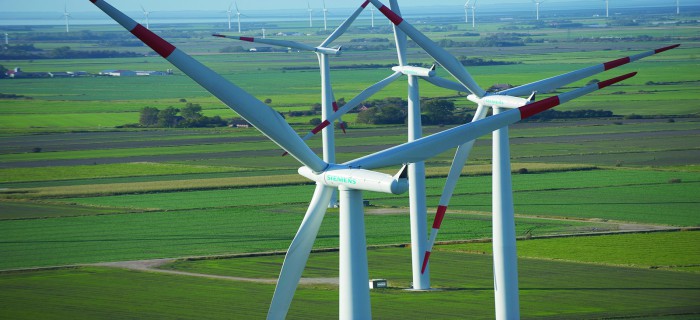
Germany's Energiewende Holds Lessons for India
Learning how Germany's citizen-owned, highly-decentralized energy transition, named Energiewende, is working to decarbonize economy, could be most useful for India. This is a new business model for sustainable growth to limit manmade climate change along with strengthening regional purchasing power. Energiewende means spending our money in regional business circles rather than sustaining the profit of international oil giants. Since energy transition set off in 2000, tens of thousands in the world's 4th largest economy have turned into electricity entrepreneurs, investing in solar panels on their houses & buying shares in wind turbines. Engaging people even in small cooperatives has become a mass movement to favor energy transition from fossils to renewable sources despite rising electricity prices, protests against wind parks & the rising renewables surcharge. A solar thermal plant supplies the entire Neuerkirch municipality with heat. Rhineland state is front-runner in fulfilling its commitment under the Paris Climate Change Agreement through a full-scale social & economic transformation by cutting GHG emissions with ending fossil fuels' use. Prominent among them is the SOLIX cooperative based in the municipality of Warrstadt, which, in 2007 & 2010, began installing solar panels on the roofs of municipal buildings. Their success encouraged Petra Gruner-Bauer & seven others to establish SOLIX, which by 2016, had 115 individual members as well as four regional shareholders, comprising three local CoS. SOLIX now owns & operates a 50 KW photovoltaic plant as well as a three MW wind turbine that supplies electricity to around 5,000 people/ year. The cooperative currently accepts members who acquire shares worth a minimum of 1,000 euros & up to 50,000 euros. The total volume of shares was more than one mn euros at the end of 2016. Currently 48% of the power production in the state is based on renewable sources & 70percent of the power is produced in Rhineland-Palatinate itself. Mainz-based UrStrom, founded in 2010, is an e.g. for potential of citizen-owned RE generation in cities & suburbs. The cooperative, with 200 members, operates 11 PV systems mounted on the roofs of public & industrial buildings, producing 100% renewable electricity & supplying it to nearly 100 households at a competitive price. Small investors are given an incentive through feed-in tariffs for new renewable power installations. According to Renewable Energies Agency, a communication platform funded by a group of 100 CoS, citizens own one-third of Germany's renewable capacity. In 2016, pvt. citizens owned 31.5% of all installed renewable power capacity, making them the most imp. investors in the sector ahead of energy CoS (15.7%), developers (14.4%), farmers (10.5%) & funds/banks (13.4%). Pvt. Citizens refer to individuals who, for instance, install their own solar PV rooftop panels, as well as to energy cooperatives.

.gif)
.jpeg)
leave your comment